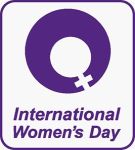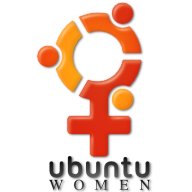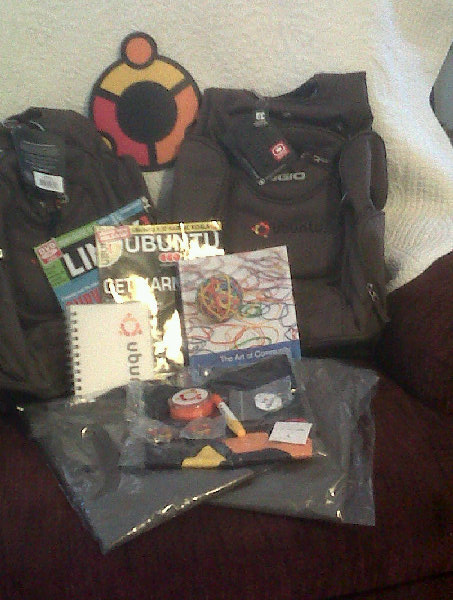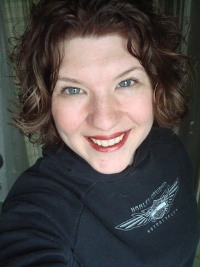 March 8, 2010 – 1st Annual Ubuntu Women Project "How I discovered Ubuntu." International Women’s Day Competition
March 8, 2010 – 1st Annual Ubuntu Women Project "How I discovered Ubuntu." International Women’s Day Competition
The Competition which was announced back in January, asked women and girls who use Ubuntu to submit their "How I discovered Ubuntu" stories. We as a Project acknowledge that there is no one definite answer to "How do you get women to use Ubuntu?", but wanted a way to highlight some of the various ways that women become Ubuntu users, contributors, and developers and at the same time not only have those stories as examples but also as a growing gift of encouragement and inspiration to women.
In order for events/competitions to be successful it takes community participation, and a heart felt thank you to all those who participated by submitting their personal "How I discovered Ubuntu." stories, those who took the time to vote, those who helped promote, and those who supported this initiative as well as offer encouragement to those might not have submitted their stories otherwise. I am grateful for everyone involved in the Ubuntu Women Project and greater Ubuntu Community as a whole who are continually helping to provide both the platform and encouragement for women to contribute to Ubuntu.
The winners of an awesome prize pack  are: Elvira Martinez and Karen Y. Perez with honorable mention going to Jen Phillips as well. CONGRATULATIONS!!!! Here are there stories:
are: Elvira Martinez and Karen Y. Perez with honorable mention going to Jen Phillips as well. CONGRATULATIONS!!!! Here are there stories:
***Elvira Martinez "tatica1" ***
Today my Honduran team mate Diego Turcios shared with me this link to Amber’s blog that excited me to finally write about how I met Ubuntu. I wanted to share this a while ago but I feel motivated about doing it through Ubuntu-women and not just for the sole interest in participating in the contest. I think it will be very interesting to hear how other women became interested in Ubuntu and others may be interested in my experience, specially considering that I am not the “computer girl” precisely.
After nearly 20 years after my high school graduation in Colombia Lycée Français Paul Valery, I found again one of my classmates through Facebook (I guess) Fabian Rodriguez known as MagicFab who after asking him what he was doing today, he mentioned Ubuntu as part of his activities. And I say activities, because Ubuntu is much more than an operating system.
I’ve always liked the world of computer science and unfortunately that was not what I studied, but I learned on my own how to manage, fix, clean my home machines. I could say that the world of computers is my passion and when Fabian told me about this, I knew it was no fluke.
I remember the first thing I said was: Ubuntu what?? How do you eat that?? And then after a brief speach about it and some information he sent to me to read on the subject, dropped his usual phrase, “If you want to install it, I can help you do it now”. Well, two days later, I was harrassing Fabian to help me install Ubuntu after a bunch of questions I had.
Some of my concerns were:
- If I would be able to use MSN and Skype with camera and audio included.
- My biggest question was if I could run iTunes on the computer (tool my daughters and my husband use).
- If Windows had to be removed to use Ubuntu.
- If I’ll have Office, PowerPoint or Excel with Ubuntu also and if so, would be so easy to use as those.
- If I was going to be able to install Ubuntu alone, long distance with Fabian’s instructions.
Well, the day I gave a YES myself to Ubuntu, began with a phone call from Fabian from Canada. After downloading into my own computer some files, we start by checking whether they were good and then install it. I remember Fabian told me, don’t install it yet first test it. Then after his explanations that I could partition the computer and leave Windows intact but also have Ubuntu too I said “Let’s do it and install it now”. And so it was, on the phone, with his help, that I installed for the first time in one of my computers Hardy 8.04 and some months later in another Ubuntu 8.10.
When he finally said, “Take a last click and you’re done, finished,” I could not believe it!! First, I had allowed to risk to install another operating system on my computer and two, that I had done through instructions by telephone. That meant that it could be do so easily! That’s how my story began with Ubuntu in June 2008 : D
Months later I bought an Acer Aspire One that came with Linpus and my next challenge was to install Ubuntu on it. It was a laptop (and not a desktop) and needed a version for netbooks so I tried first to fight with LPIA platform with which I ended up frustrated because after installing it did not work and gave me error. Then it was new to me to download an ISO file to my laptop and also install it throught a USB. I think it was two weeks without my computer, sweating and suffering, but with some help of several friends of the Honduran community I finally had Ubuntu on my Acer. I remember I installed 8.10 version which gave me enough slow problems on my laptop, but when I upgraded to 9.10, I was sooo happy;)
From Ubuntu, I further research, looking and learning how to move in the Ubuntu world. As part of that and then again by MagicFab’s suggestions I learned how to participate via IRC in different communities, to tell my experiences with applications in Ubuntu, I dared to start my own blog for the first time telling my experience with the Ubuntu Desktop Course (elearning), learned to use my blog as a tool through which I can inform others about Ubuntu, participating in lists of the communities I belong and learned how to handle wiki, blueprint and documentation pages to share information to others.
Today I am part of the community and am in several team where I hope to be able to support as I learn from everyone’s experiences too. I am a member in the communities of Ubuntu Honduras, Colombia, Women, Guatemala and El Salvador. Almost daily I am present in IRC channels of Honduras, Colombia and Women getting feedback and contributing wherever I can. I still can not work actively participate in all these media but try to do when I feel more confident about the subject. English is my third language, so I am kind of shy in the ubuntu-women channel.
Today I know that there is Free Software and Ubuntu exists there with all its benefits over other systems. I also know that although I did not study computers, I can handle and learn thousands of things about it and help knowing others that will benefit too.
Today I belong and work hand by hand with others in the Honduras Ubuntu community, promoting Ubuntu in the country, mostly in San Pedro Sula where I currently reside. With the support Fabian gave me, I revived the group that was practically abandoned and we are trying again today to show people of Honduras that Ubuntu is the best choice when it comes to choosing an operating system. Every day I try to learn more and see how I can support other Ubuntu users here and elsewhere. I am very excited to be part of this team and I love to learn and collaborate with this good cause;)
Since I started being part of this community, I had the opportunity to share with others from other distros like Fedora or Debian. There is little that I have experienced them, but for now I’m only interested in Ubuntu.
My name is Elvira Martinez or tatica1 as I I’m known in the community and my main challenge is to convince my daughters and my husband that Ubuntu is the best choice when we talk about operating systems.
***Karen Y. Perez***
When I was a little girl i saw my dad studying computer science to eventually working on projects. Like most little girls I admire my dad more than anyone in the world and I always tried to be just like him. I read many books like him, I begged for my own laptop and fell in love with space. Since then my passion for science, math and technology developed. There were moments where I loved chemistry more than physics and times where math was better than astronomy. But, my passion for computers never faded once. Each year I pleaded my dad to teach me how to program because his code was like a puzzle i need to understand. So, every so often he would teach me bits and pieces but only enough to keep my curiosity afloat and have me do my own research. One day I stumbled across one of my dad’s Unix books in his library. I didn’t really understand much at the time so I tried my very best to read it and eventually I did some research on-line. While doing my research I read about Linux and I saw what the open source revolution was all about. I taught myself as much as I could and I decided to convert my laptop to Linux for the first time in ‘09. Ubuntu has helped me with my studies in computer science and helped me stay open to new things of course including technologies. The last thing a geek needs is to not want to explore outside of the box. I guess you can say I’m a self pro-claimed fem-geek and I couldn’t imagine life any other way. Although, I am no professional yet I do try to talk to other girls and show them how great of an experience using Linux Ubuntu is as well as many other great “geeky” technologies. I hope to one day show young girls that there is more to life than fashion. That you can be as “fashionable” as Barbie and yet be an astronaut.
***Jen Phillips***
Learning to Fly
Some years ago, I used to travel everywhere by bus. The company that ran it was called Microsoft, and I used the Number 3.1. It generally got me where I needed to be, but it took a bit of an odd route to get there, and it would often stop at seemingly random points. If I fancied a change, I could take my walkman, or a book. It wasn’t the most comfortable ride, but it did ok, and I was used to it. After a while, the company decided to upgrade all their busses and change all the routes – and put the fares up. I went onto the Number 95, and everything looked nice and shiny, although I missed my stop a couple of times because I wasn’t used to the route. After a while I realised that although the route didn’t take the same detours, it took new ones, so I didn’t really get where I was going any faster. The busses all seemed to get a bit dingy after a while, too. Still, I had my CD walkman, and it became familiar again.
Eventually, I took the plunge, and got a car. I loved the freedom – I could go where I wanted to go, when I wanted to go. I wasn’t constrained by having to have the right money, and I didn’t have to stop for the sake of everyone else. It was a SuSE, and it was mine and I loved it. Except, any time anything went wrong I had to ask for help. When the radio stopped working, I had to get someone else to fix it. If i couldn’t find a particular stick or button, I had to get someone to show me where it was. It also wouldn’t play any of my old CDs. In short, it was frustrating. I tried a couple of other cars, but they weren’t any better. I took ages getting my Debian to even start, and somehow had a knack for stalling it before I got to the end of the street. Eventually, I gave up and went back to the bus – the XP route now had air conditioning and contoured seats, and I could cope with the delays (and occasional breakdowns) because it did tend to get me there in the end.
Then one day, something quite miraculous happened: someone gave me a pair of wings. In only a couple of lessons, I was flying! I no longer have to wait for the bus, and I don’t need a mechanic to come and rescue me any more. If I want different music, I can just pick up a media player and set it going. If I want to dye my wings a different colour, that’s easy too. I decide which route to take – I’m not even limited by roads any more. The best thing is that flying feels so natural – like walking only better. I call these wings “Ubuntu”.
These story submissions along with all the others are available on the Ubuntu Women Project wiki pages.
Without the efforts of Ubuntu Women Project team member, Melissa Draper, the competition may have never made it to the community, the time and talent she personally put into this competition by drafting the competition as well as writing the voting submission application was awesome! – Thanks Melissa!
It is also important to say thank you to the sponsors of this competition, Rikki Kite, Associate Publisher, Linux Pro and Ubuntu User Magazines, for donating Linux Pro or Ubuntu User Magazine subscriptions (choice of one per winner), to Canonical for donating the Ubuntu Backpacks, notebooks, pens, lanyards, pins and T-shirts, at last but not least to Jono Bacon for making the announcement of the winners as well as for copies of Art of Community.
Again, Congratulations to the winners of the prize packs as well as all those who submitted your person Ubuntu discovery stories. I can’t wait to read the submissions for the 2nd Annual Ubuntu Women Project “How I discovered Ubuntu.” International Women’s Day Competition, so mark your calendars and work on YOUR personal discovery of Ubuntu to help celebrate 100 years of International Women’s Day.
REMINDER: If you or someone you know would like to find out more information about the Ubuntu Women Project there are several ways to do so – website, mailing list, IRC channel(s), and Ubuntu Women Forums
[Discuss the International Women’s Day Competition Winners on the Forum]
Originally sent to the ubuntu-news-team mailing list by Amber Graner on Tue Mar 9 04:46:28 GMT 2010
 March 8, 2010 – 1st Annual Ubuntu Women Project "How I discovered Ubuntu."
March 8, 2010 – 1st Annual Ubuntu Women Project "How I discovered Ubuntu." 
 are: Elvira Martinez and Karen Y. Perez with honorable mention going to Jen Phillips as well. CONGRATULATIONS!!!! Here are there stories:
are: Elvira Martinez and Karen Y. Perez with honorable mention going to Jen Phillips as well. CONGRATULATIONS!!!! Here are there stories:





